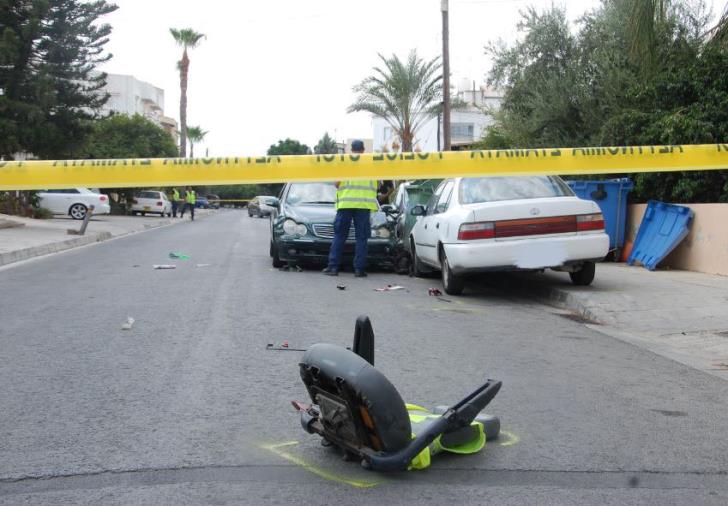Authorities are reviewing extra measures to reduce the high death toll on the island’s roads, just hours after two people died in two separate road accidents on Sunday.
Transport Minister Yiannis Karousos on Monday chaired a meeting of the Road Safety Council focused on actions to end the carnage caused by road accidents.
This year, 44 people have lost their lives in 43 road accidents, including 14 motorcyclists and six pedestrians.
On Sunday, the latest victims were a 60-year-old woman and a British expat who lost their lives on roads in the Paphos district.
Androula Papachristoforou, 60, died after a hit-and-run as she attempted to cross a road in Paphos at around 9.15 pm, while Chris Simmons, a 26-year-old Briton, was killed when his car went off the road.
The meeting, a scheduled session of the Road Safety Council, was attended by Justice Minister Stefi Dracou, police officials and Education Ministry representatives.
Stakeholders gathered to review the implementation of the national strategic road safety plan.
Karousos said: “A series of policies are being promoted to improve motorists’ behaviour on Cyprus roads, to bring down accidents and deaths to a minimum”.
“We have dynamically and decisively begun the implementation of the Strategic Plan for Road Safety for 2021-2030.”
Out of the 158 action plans numbered in the strategic plan, 70 were implemented in 2021, corresponding to 44% of the total.
Traffic cameras
The minister said authorities are banking on the speed camera network reintroduced in October.
After 14 years, speed cameras are back on the roads with four fixed speed cameras and four more mobile cameras.
The four cameras are set up at a busy Nicosia junction on Grivas Digheni and Demosthenis Severis Avenues.
The other four mobile cameras will be placed strategically across the island according to a plan drawn up by traffic police.
Cameras monitor speed violations, motorists not wearing a seat belt, motorcyclists not wearing crash helmets, the use of mobile phones whilst driving, and drivers not complying with the traffic light system.
The project is implemented in three phases, with 90 fixed cameras installed at 30 locations to monitor red light and stop sign infringements.
In the first six months, 20 fixed and 16 mobile cameras will be installed, with an additional 66 cameras in the third stage in the following 12 months.
It will be completed in about two years.
Initially, data collected from the speed cameras had authorities worried as they recorded a whopping 1,700 traffic violations on the first day.
Karousos said that Cypriot motorists are beginning to get to know the system and are complying, as a reduction in violations suggests.
“Throughout the first week, the cameras recorded an average of 804 violations per day, with the number decreasing to 703 the following week and 423 the one after.”
Karousos said the council would consider measures to reduce accidents and deaths concerning motorcyclists.
According to data collected from the EU-led ETSC Road Safety Performance Index (PIN), a policy tool to help the EU Member States improve road safety, from 2018 to 2020, Cyprus recorded the highest death rate of motorcyclists involved in accidents not wearing a crash helmet.
In this context, said Karousos, many amendments to the driving licence law regarding motorbikes had been prepared.
Amendments foresee an expiration date for a learner’s driving licence, which will cease to be valid two years after being issued.
“This will reduce the number of young drivers riding powerful motorcycles without a regular permit.”
Learners will not be allowed to roam on Cyprus’ roads without being accompanied by an accredited instructor. Violators will be criminally prosecuted.
With the Christmas holidays fast approaching, Karousos wished “these holidays be days of joy for every home in Cyprus.
“We cannot afford to lose our loved ones on the road. This year, let us all reach our destination with safety”.










